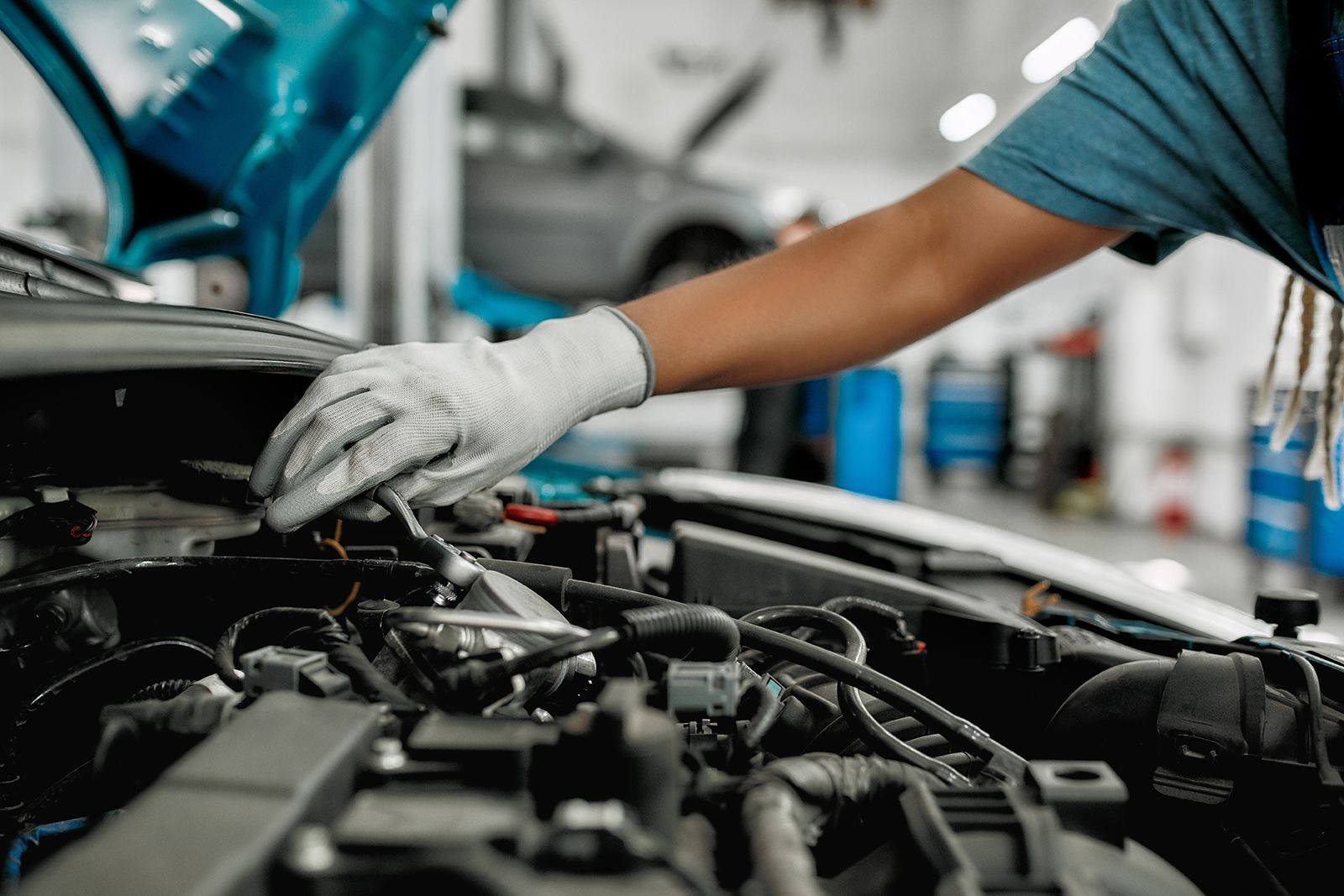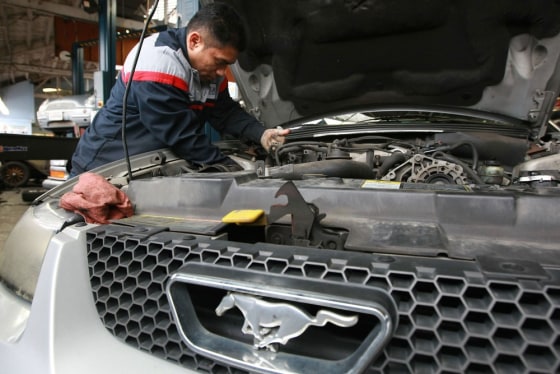When an auto gets to higher mileage, it requires a lot more alert and constant upkeep to maintain it in optimal running condition. High-mileage cars typically call for certain solutions that might not be required throughout the initial couple of years of ownership.
If you observe any kind of problems with moving gears, such as slipping or harsh transitions, it's a sign that your transmission fluid may need attention.
It's suggested to have your brake system evaluated every year, or much more often if you notice unusual sounds or vibrations when stopping.
If you see your vehicle drawing away, it's additionally an excellent idea to check the alignment and suspension elements.
![]()
If you notice too much bouncing or handling concerns, it's time for a suspension evaluation.
![]()
Final thought. Preserving a high-mileage automobile needs alertness and routine care to maintain it running smoothly. With the appropriate care, your high-mileage vehicle can continue to serve you well for numerous even more years to come.
- Engine Oil and Filter Changes. One of the most crucial aspects of preserving a high-mileage vehicle is keeping up with routine oil changes. As your car gathers miles, the oil breaks down and ends up being contaminated, shedding its capability to safeguard the engine.
- Transmission Liquid Replacement. Transmission liquid plays an important function in making certain smooth gear shifts and keeping your cars and truck's transmission system running successfully. Over time, transmission liquid can degrade and lose its performance, specifically in high-mileage cars.
If you observe any kind of problems with moving gears, such as slipping or harsh transitions, it's a sign that your transmission fluid may need attention.
- Brake System Assessment. High-mileage vehicles especially call for normal brake system assessments to make certain safety and security. The brake fluid need to additionally be examined and changed occasionally to preserve appropriate stopping efficiency.
It's suggested to have your brake system evaluated every year, or much more often if you notice unusual sounds or vibrations when stopping.
- Tire Upkeep and Turning. Tires are one of the most damaged elements in high-mileage cars and trucks. Proper tire upkeep is crucial for maintaining handling, fuel performance, and safety. In enhancement to routinely checking the tire stress, it's important to rotate your tires every 6,000 to 8,000 miles. This guarantees also tire wear and assists your tires last much longer. Evaluate your tires for any damage, fractures, or unequal wear patterns, which might suggest placement or suspension problems.
If you see your vehicle drawing away, it's additionally an excellent idea to check the alignment and suspension elements.
- Timing Belt or Chain Inspection. The timing belt or chain keeps the engine's camshaft and crankshaft synchronized to ensure correct engine operation. If the timing belt breaks, it can create disastrous engine damage. For high-mileage cars and trucks, it is necessary to examine the timing belt or chain regularly and change it every 60,000 to 100,000 miles, depending upon the manufacturer's referrals. A well-kept timing belt can protect against significant engine fixings down the road.
- Cooling System Maintenance. As your automobile ages, the cooling system can start to show indicators of wear, leading to getting too hot and engine damage. The radiator, hoses, and water pump must all be inspected frequently for obstructions, splits, or leaks. Purging the air conditioning system every 30,000 to 50,000 miles can help get rid of rust and particles that can reduce the efficiency of the coolant. If essential., make certain to examine the coolant levels on a regular basis and cover them off.
- Shock Absorber Check. High-mileage automobiles are prone to suspension wear, which can influence the cars and truck's handling and ride high quality. Normal suspension checks will help determine any kind of damaged or worn parts before they affect your auto's efficiency.

If you notice too much bouncing or handling concerns, it's time for a suspension evaluation.
- Battery Health. A high-mileage vehicle might have an older battery that is losing its ability to hold a charge. If your auto has a hard time to begin or if the battery warning light comes on, replacing the battery faster rather than later can protect against unforeseen malfunctions.
- Fuel System Maintenance. As the cars and truck ages, carbon buildup in the gas injectors and fuel lines can lower engine efficiency and fuel effectiveness. For high-mileage lorries, routine fuel system upkeep, consisting of replacing the fuel filter and cleaning the injectors, can help restore optimal efficiency. Using fuel system cleaners can also assist in removing carbon down payments and enhancing fuel efficiency, especially if your car has experienced slow acceleration or harsh idling.

- Exhaust System Inspection. A properly working exhaust system assists your automobile run effectively and lowers damaging exhausts. As high-mileage lorries age, the exhaust system can establish corrosion or leakages that need focus. Have the exhaust system checked regularly, particularly the muffler and catalytic converter, to ensure that no clogs or leakages are influencing engine efficiency. A broken exhaust system can reduce fuel efficiency and boost engine pressure.
Final thought. Preserving a high-mileage automobile needs alertness and routine care to maintain it running smoothly. With the appropriate care, your high-mileage vehicle can continue to serve you well for numerous even more years to come.
Navigation
Home
Latest Posts
Discover the Vibrant New Mazda CX-50
Published May 27, 25
2 min read
Basil Mitsubishi: A Pillar of Neighborhood Support in Buffalo
Published May 21, 25
1 min read
Discover Your Following Made Use Of Automobile at Basil Mitsubishi
Published May 20, 25
1 min read